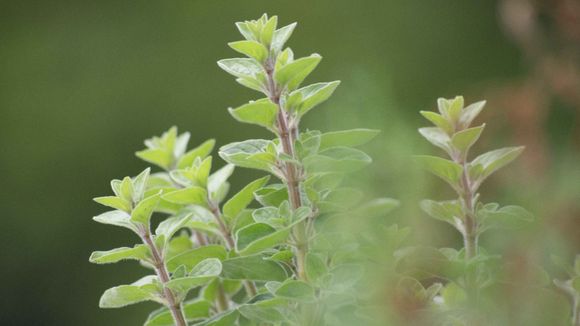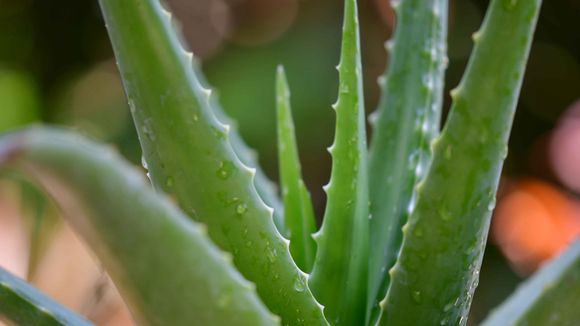1. Tabebuia avellanedae
Pau d'Arco is a tree native to South America, known for its antifungal properties. Active compounds in its bark, such as lapachol and beta-lapacone, have been shown to inhibit the growth of Candida albicans (1).
Recipe: Pau d'Arco tea
Ingredients:
- 1 tablespoon of Pau d'Arco bark
- 8 ounces of boiling water
Preparation:
- Steep the bark in boiling water for 15-20 minutes, strain, and drink 2-3 times daily.
2. Garlic (Allium sativum)
Garlic is a well-known antimicrobial herb, containing allicin, a compound with potent antifungal properties against Candida albicans (2).
Recipe: Garlic Supplement
Ingredients:
Preparation:
- Crush or finely chop the garlic and allow it to sit for 10-15 minutes to activate the allicin. Consume daily with a meal.

Photo by Tina Xinia on Unsplash
3. Oregano Oil (Origanum vulgare)
Oregano oil contains two active compounds, carvacrol and thymol, both of which have demonstrated effectiveness in combating Candida albicans (3).
Recipe: Oregano Oil Capsules
Ingredients:
- Oregano essential oil
- Olive oil
- Empty capsules
Preparation:
- Mix 1 part oregano essential oil with 3 parts olive oil.
- Fill the capsules with the mixture and take one capsule twice daily.
4. Coconut Oil (Cocos nucifera)
Coconut oil is rich in lauric acid and caprylic acid, two fatty acids with potent antifungal effects against Candida albicans (4).
Recipe: Coconut Oil Supplement
Ingredients:
- 1 tablespoon of virgin coconut oil
Preparation:
- Consume 1 tablespoon of virgin coconut oil daily. You can also use it as a cooking oil or add it to smoothies.

Photo by pisauikan on Unsplash
5. Aloe Vera (Aloe barbadensis miller)
Aloe Vera is a succulent plant known for its soothing properties. Studies have shown that aloe vera has antifungal effects against Candida albicans (5).
Recipe: Aloe Vera Juice
Ingredients:
- Fresh aloe vera leaf
- Water
- Lemon (optional)
Preparation:
- Remove the gel from the aloe vera leaf and blend with water. Add lemon for taste, if desired. Drink 1-2 ounces daily.
Questions and Answers
Q: How long should I use these herbal remedies before expecting results?
A: The duration of treatment may vary depending on the severity of your candida overgrowth and your individual response to the remedies. It is essential to consult a healthcare professional before starting any treatment and to monitor your progress.
Q: Can these herbal remedies be used in combination with conventional antifungal medications?
A: Some herbal remedies may have synergistic effects when used alongside conventional antifungal medications. However, it is crucial to consult a healthcare professional before combining treatments to avoid potential adverse interactions.
Q: Are there any side effects associated with these herbal remedies?
A: Although generally considered safe, some individuals may experience side effects or allergic reactions to these remedies. It is essential to start with a low dosage and monitor your body's response, as well as consult a healthcare professional before starting any new treatment.
Q: Can these herbal remedies be used during pregnancy or breastfeeding?
A: Pregnant or breastfeeding women should exercise caution when using herbal remedies, as some may have unknown effects on the developing fetus or infant. Always consult a healthcare professional before using any herbal treatments during pregnancy or breastfeeding.
Q: Are there any dietary changes that can help with Candida overgrowth?
A: A diet low in sugar and refined carbohydrates can help reduce Candida overgrowth, as these substances provide fuel for the fungus. Incorporating more whole foods, such as vegetables, lean proteins, and healthy fats, can also support a healthy gut environment and immune system.
Referrals
- de Miranda, D. G., et al. (2013). Antifungal Activity of the Extract of Tabebuia avellanedae Against Candida Species. Mycopathologia, 176(5-6), 329-332.
- Shuford, J. A., et al. (2005). Antifungal Susceptibilities of Cryptococcus neoformans. Antimicrobial Agents and Chemotherapy, 49(2), 547-553.
- Cleff, M. B., et al. (2010). In vitro Activity of Origanum vulgare Essential Oil Against Candida Species. Brazilian Journal of Microbiology, 41(1), 116-123.
- Ogbolu, D. O., et al. (2007). In vitro Antifungal Activity of Coconut Oil and Fluconazole Against Candida Species. Mycoses, 50(3), 208-213.
- Choonharuangdej, S., & Srithavaj, T. (2017). In vitro Antifungal Activity of Aloe vera Leaf Gel against Candida albicans. Journal of Health Research, 31(5), 341-345.









